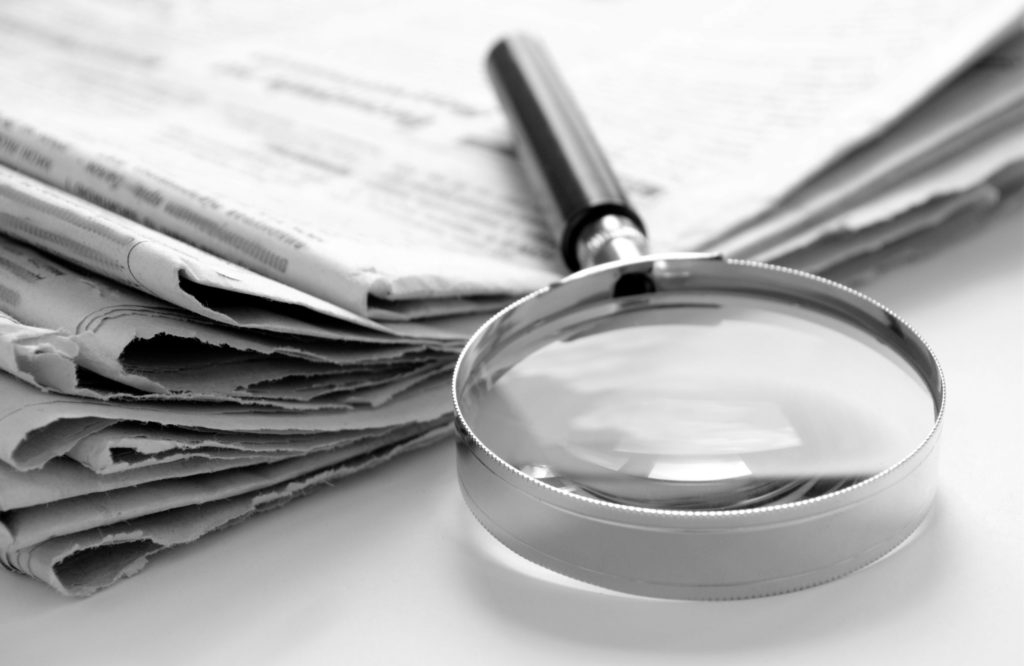Australia/Israel Review
Media Microscope: Hits and misses
Aug 14, 2024 | Allon Lee

The end of July and first week of August was a tumultuous period in the Middle East.
On July 27, a Hezbollah rocket killed 12 Druze children playing soccer in the village of Majdal Shams on Israel’s Golan Heights. This was followed by Israel’s elimination of top Hezbollah commander Fuad Shukr on July 30, and the assassination of Hamas political chief Ismail Haniyeh in Teheran a day later.
For the most part, the media consensus was that Hezbollah fired the rocket that hit Majdal Shams, yet Hezbollah’s vehement but implausible denials were sometimes given too much credence. Israel’s evidence – including debris found on site with markings from an Iranian Falaq-1 rocket that only Hezbollah uses – received scant coverage.
On ABC TV “News” (July 29), Global Affairs Correspondent John Lyons was highly sceptical of Hezbollah’s involvement, explaining that the group usually claims responsibility and saying, incorrectly, that “It’s very unusual… for Hezbollah to target this area.” Lyons said he wanted “to actually see the evidence” that it was a Falaq-1 rocket – even though Israel had already released photographic evidence.
Emeritus Professor Amin Saikal on ABC RN “Breakfast” (July 29) also questioned Hezbollah’s responsibility for the strike, suggesting Israeli PM Netanyahu wants to “drag the Americans into this major conflict in the region.”
On ABC NewsRadio (July 29), analyst Rodger Shanahan said, “If they weren’t directly responsible, then at least one of their close allies [was]. So, at the end of the day… Hezbollah is ultimately responsible… they realise the gravity of the error… and I think they’re trying to backpedal.”
In the Australian (July 30), correspondent Samer Al-Atrush wrote “[Hezbollah] was certainly the culprit. Its denial speaks to the so-called Islamic resistance’s embarrassment at having massacred a dozen children to a religious minority that wields power in Lebanon.”
Former Australian Ambassador to Lebanon Ian Parmeter (ABC TV “The World”, July 30) attributed the hit to a “misfire… I think there’s no doubt Hezbollah fired the rocket… aiming at an Israeli military site” near the village.
Although no party claimed the hit on Haniyeh, it was widely agreed only Israel has the expertise to carry it out.
Former Federal Labor MP Michael Danby told Sky News (Aug. 1) that Haniyeh was killed “to send a message… to Hamas that, 70 years after the Second World War, if you kill… Jews or Israelis, the people who organise it are not going to get away with it. But also important was the message to Iran. If you continue to use… your proxies… Hamas, Hezbollah, Houthis, all funded by Teheran[’s] oil revenues… we can get you.”
Amin Saikal in Nine Newspapers (Aug. 2) seemed to imply that killing Haniyeh was also part of a conspiracy by Israel’s PM Netanyahu to, among other things, “oblige the US to participate in a war [against Iran] Israel cannot win on its own.”
Guardian Australia correspondent Simon Tisdall (July 31) suggested “It would have been preferable if Haniyeh… had faced trial at the International Criminal Court” but “that now cannot happen… Israel has once again sought ‘justice’ through extrajudicial murder.” Tisdall also commended Hezbollah’s “restraint” since October 7. Elsewhere, analyst Jonathan Pannikoff said on ABC NewsRadio (Aug. 1), that he doubted the ICC “would… go after Israel on [the killing of Haniyeh]” in the same way “they’re going after Israel… when it comes to the war in Gaza.”
The extent of Haniyeh’s involvement in terrorism was a hot topic.
SBS’s website reported (July 31) that “Adeeb Ziadeh, a specialist in Palestinian affairs at Qatar University, said before [Haniyeh’s] death… he had close ties with… hard-line figures in the group and the military wing.”
On ABC TV “The World” (July 31), Middle East correspondent Eric Tlozek said Arab leaders “viewed him as a pragmatist, and in Hamas terms, a relative moderate,” while SBS TV “World News” (Aug. 1) reporter Liz Maddock asserted Hamas “have lost in Haniyeh a more moderate voice.”
The West Australian (Aug. 1) disputed Haniyeh’s reputation as a “relative moderate,” saying Haniyeh “bears responsibility” for the more than 1,150 Israelis murdered on October 7 “and the many thousands of Gazans killed, used by Hamas as human shields, in the course of five wars… with Israel.” The paper correctly noted that Haniyeh “had a key role in building up Hamas’ military capacity, including through securing millions in military aid from Iran” and was accused of diverting humanitarian aid.
Tags: Australian media, Israel, Middle East






